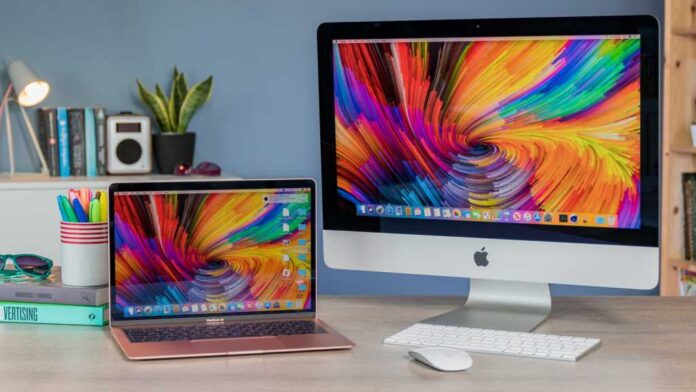The debate of desktop versus laptop for the remote worker has been raging for years. With the increased demand for remote work due to the pandemic, the discussion has become more relevant than ever.
This blog post will dive into the pros and cons of desktops and laptops from JW computers to help you decide the best fit for your remote work lifestyle.
Pros of a Desktop
When working from home, one of the most important decisions is whether you should invest in a desktop or laptop computer. Each has its pros and cons, and both have the potential to be an excellent work-from-home solution. To help you decide which is best, let’s look at the pros and cons of a desktop.
Desktop computers offer more power than laptops. A desktop can handle more processing power, which means it can take on larger or multiple projects. It also provides more storage capacity to keep your work files in one place without running out of space.
Desktops also tend to last longer than laptops. While laptops come with shorter warranties, desktops can often last three to five years or more if properly cared for. This makes them an excellent investment for those who plan to use their computer for an extended period.
Another great benefit of desktops is that they are more affordable than laptops. Generally speaking, desktops cost less upfront than laptops, so that you can get a lot more bang for your buck.
Cons of a Desktop

One of the main drawbacks of a desktop is its lack of portability. Unlike laptops, desktops are not designed for travel, so if you are constantly on the go.
Additionally, desktop computers usually require additional equipment such as a monitor, keyboard, mouse, and printer, which can add to their cost. Another downside of desktops is that they are prone to overheating.
This is because they are typically located in one spot and do not have fans to cool them down like laptops. If you plan on using your computer for extended periods, invest in an additional cooling system or fan.
Finally, desktop computers typically require more setup time and technical know-how than laptops. Setting up a desktop computer can be an involved process, especially if you need to be more tech-savvy.
Overall, deciding between a desktop or laptop for your work-from-home setup is ultimately a personal decision. Consider your needs and budget before making any final decisions. With the proper setup, either can be an excellent choice for the remote worker!
Pros and Cons of a Laptop

Laptops have long been a popular choice for remote workers when it comes to working from home. They provide the convenience of taking your work with you wherever you go, from your living room to your bedroom or from the coffee shop to the park.
While they are often seen as a more expensive option than desktops, they offer certain advantages that make them worthwhile investments.
The main advantage of a laptop is its portability. It is much easier to carry around a laptop than a desktop computer, making it perfect for those who frequently need to move their workspace around.
Additionally, since laptops are designed to be thin and lightweight, they don’t require as much desk space as desktops do. This can be helpful if you have limited space in your home.
Laptops also tend to be less expensive than desktops. Many budget-friendly options are available, so you don’t have to break the bank to get a computer for work. Furthermore, laptops are typically more energy efficient than desktops, saving you money on your electric bill in the long run.
The main drawback of using a laptop for work is that they often lack the power and features of desktops. They are generally slower and may need help to handle the same types of tasks that desktops can.
This can be frustrating if you’re working with large files or need to run multiple programs at once. Additionally, laptops have smaller screens than desktops and often have shorter battery life.

In addition, laptops are usually more difficult to upgrade than desktops. While it is possible to upgrade specific components, such as RAM or storage, it requires taking apart the laptop and can be time-consuming and costly.
Choosing a laptop or desktop for work from home depends on your individual needs and preferences. Consider your budget, workload, and lifestyle before deciding which is best.
Which One Is Right for You?
Whether you’ve been forced to work remotely due to the COVID-19 pandemic or you’ve been a remote worker for some time, one of the biggest questions is which type of device is best suited for the job: a desktop computer or a laptop. Each has advantages and disadvantages, so it’s essential to understand the differences and make an informed decision.
Regarding power and performance, desktops often have the edge over laptops. They are larger, have more storage and memory, and provide higher-end components that can help improve your productivity.

Desktops are also more affordable than laptops, as you can customize them to your needs. However, desktops require a dedicated workspace and have less portability than laptops.
On the other hand, laptops offer more portability, allowing you to work anywhere you have an internet connection. They are generally more expensive than desktops, but they often come with higher-quality components and better battery life.
Laptops also don’t require a lot of space, making them ideal for smaller living spaces. The downside to laptops is that they often lack the power and performance of desktop computers, which may sometimes limit your productivity.
It depends on your personal preferences and needs. If you want a powerful machine with plenty of storage and memory that you can customize to your liking, then a desktop is the right choice.
But a laptop is a better option if you need something more portable. Ultimately, weigh the pros and cons of both before making a decision.
Conclusion
In conclusion, there is no right or wrong answer when choosing between a desktop and a laptop for working remotely. Both have pros and cons depending on your specific needs, so it’s best to consider the different factors involved before deciding. Ultimately, the most important thing is to choose what works best for you and your work-from-home lifestyle.










